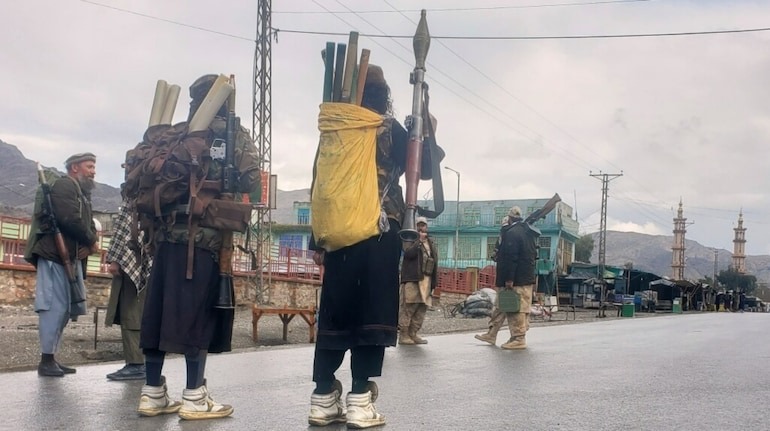
In a significant and unexpected move, the Trump administration has removed bounties on three senior Taliban leaders, including Sirajuddin Haqqani, the current Interior Minister of the Taliban government and head of the Haqqani network.
The decision is especially notable because Sirajuddin had previously carried a $10 million bounty under the U.S. Rewards for Justice program. His profile, however, no longer appears on the program's website. The FBI's wanted list, as of Sunday, still displays his wanted poster.
Haqqani's Involvement in Terror Attacks
Sirajuddin Haqqani has admitted to orchestrating the 2008 Serena Hotel attack in Kabul, which killed six people, including U.S. citizen Thor David Hesla. His network has also been implicated in multiple deadly attacks, including assaults on U.S. and Indian embassies in Afghanistan.
The Haqqani network, long designated as a Foreign Terrorist Organization (FTO) by the U.S., is now part of the Taliban government that regained control of Afghanistan in 2021, following the withdrawal of foreign troops after a U.S.-Taliban deal brokered during Trump’s first term.
Context Behind the Decision
The removal of bounties follows a recent diplomatic development: the release of American tourist George Glezmann, who had been detained in Afghanistan since 2022. The Taliban released him as a 'goodwill gesture', facilitated by Qatar, in exchange for improved diplomatic relations rather than the release of Taliban prisoners.
This has been presented by Trump officials as a diplomatic success in line with the administration’s priority to bring back Americans held abroad.
Strategic Rationale: Trust-Building or Concession?
Some U.S. officials suggest lifting the bounties is part of a broader trust-building exercise under the Doha Agreement, aimed at stabilizing Afghanistan and ensuring it does not become a haven for extremist groups again.
The Trump administration has occasionally asserted that the Taliban has cooperated in counterterrorism efforts, a claim many experts and former officials view with skepticism.
Criticism and Concerns
The decision has sparked considerable backlash. Critics argue:
It may be seen as a concession to the Taliban, potentially undermining years of military sacrifice.
It could weaken the U.S. negotiating position, sending a signal of reduced leverage.
It risks emboldening insurgent activities and diminishing justice for victims of Taliban attacks.
Many believe this move contradicts longstanding U.S. counterterrorism policy, especially given the Taliban's and Haqqani network's history of violence.
Read More: World Bank Approves 700 Million Dollars for Pakistan to Boost Economic Stability and Public Services

 Share
Share



